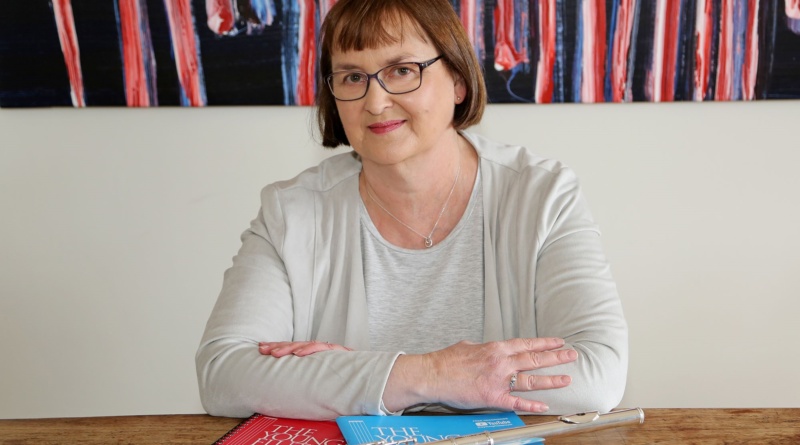From Idea to Score: My Journey Commissioning Composers
By Karen North
Commissioning composers to create new music has become an exciting way to support and enrich the contemporary music scene. Over the past few years, I have had the privilege of commissioning composers to write works for intermediate-level flute players. This endeavor has been both daunting and fascinating, presenting a unique set of challenges and rewards.
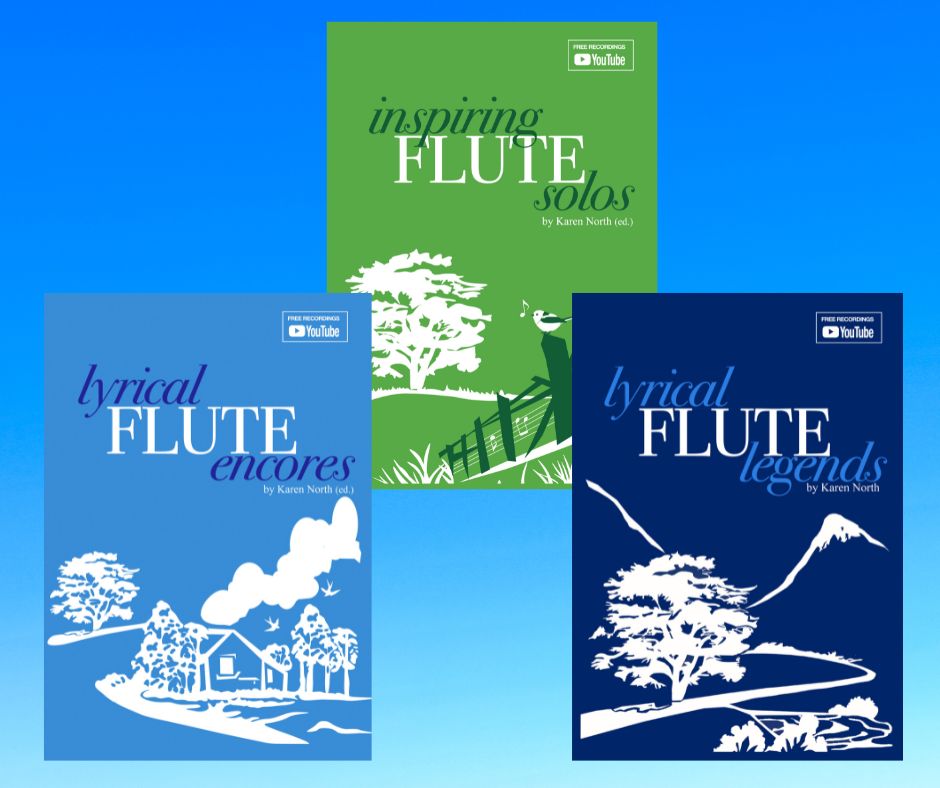
Initial Concept
The idea for a collection of new pieces arose from teaching intermediate-level flute students and finding a shortage of suitable works, particularly modern works. Many of the recently composed pieces were for advanced players, so, having already written a series of books for younger players, I decided it was time to produce a book for the intermediate students.
I had my own arrangements of 19th and 20th-century music, including some lesser-known pieces such as by the Finnish composer Toivu Kuula. However, I also really wanted to include works written by living composers. When I started commissioning works in 2020, I had little idea what to do; it was a “learn as you go” process.
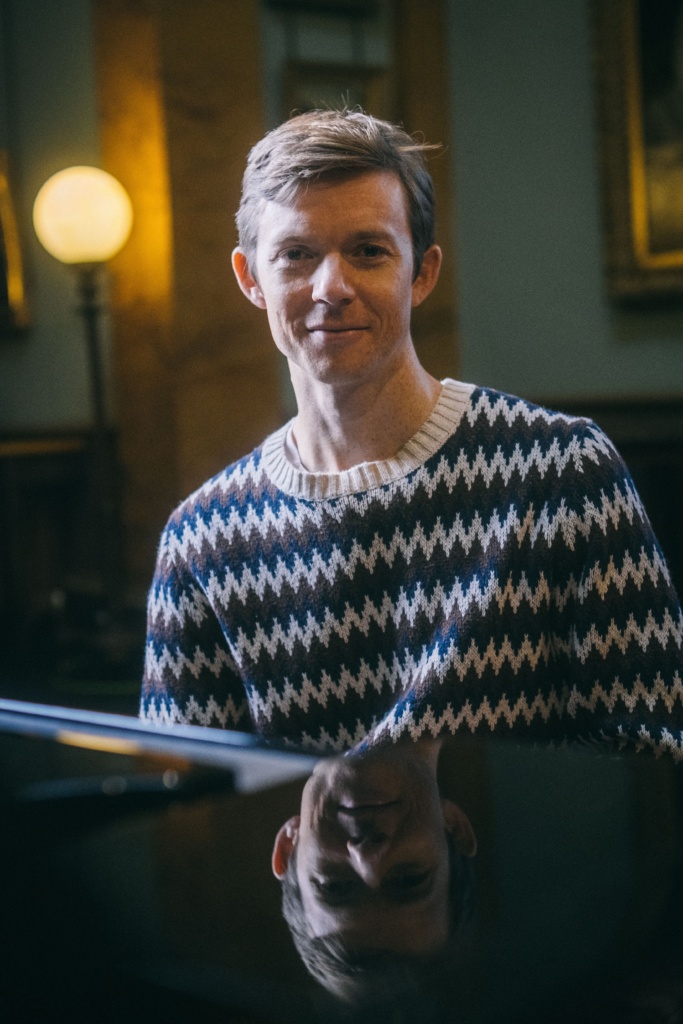
Scouting for Composers
The first step of my commissioning journey was to find composers whose style aligned with my idea. I wanted music with a strong melodic basis and lyrical pieces to develop the expressive qualities of intermediate students’ playing. With trepidation, I decided to start at the top and asked leading Australian composer Elena Kats-Chernin and the outstanding flutist and composer Gary Schocker. When both accepted my offer of commissions, the idea for the book became a reality, and I quickly searched for more composers. Some I already knew their music, while others, such as UK composer Greg Harradine, I fortuitously came across by scrolling through YouTube videos. I was keen to include some up-and-coming composers, so offered some commissions to younger generation musicians.
An Unexpected Roadblock
Perhaps the biggest challenge for a novice commissioner was negotiating the contracts for the commissions. Navigating this legal landscape was akin to embarking on a multifaceted expedition, where every clause and subclause carried weight and consequence. The contracts, meticulously crafted, needed to strike a balance between protecting the interests of all parties involved while fostering an environment conducive to artistic creativity.
One of the central challenges lay in determining fair and equitable commission fees. My Google searches revealed little information on this subject, and it was a while before I felt ready to progress. Negotiations required a delicate blend of financial acumen, artistic appreciation, and diplomacy. It was also crucial to arrive at a fee structure that recognized the composers' skill and talent and ensured that the project remained financially sustainable.
Behind the Scenes
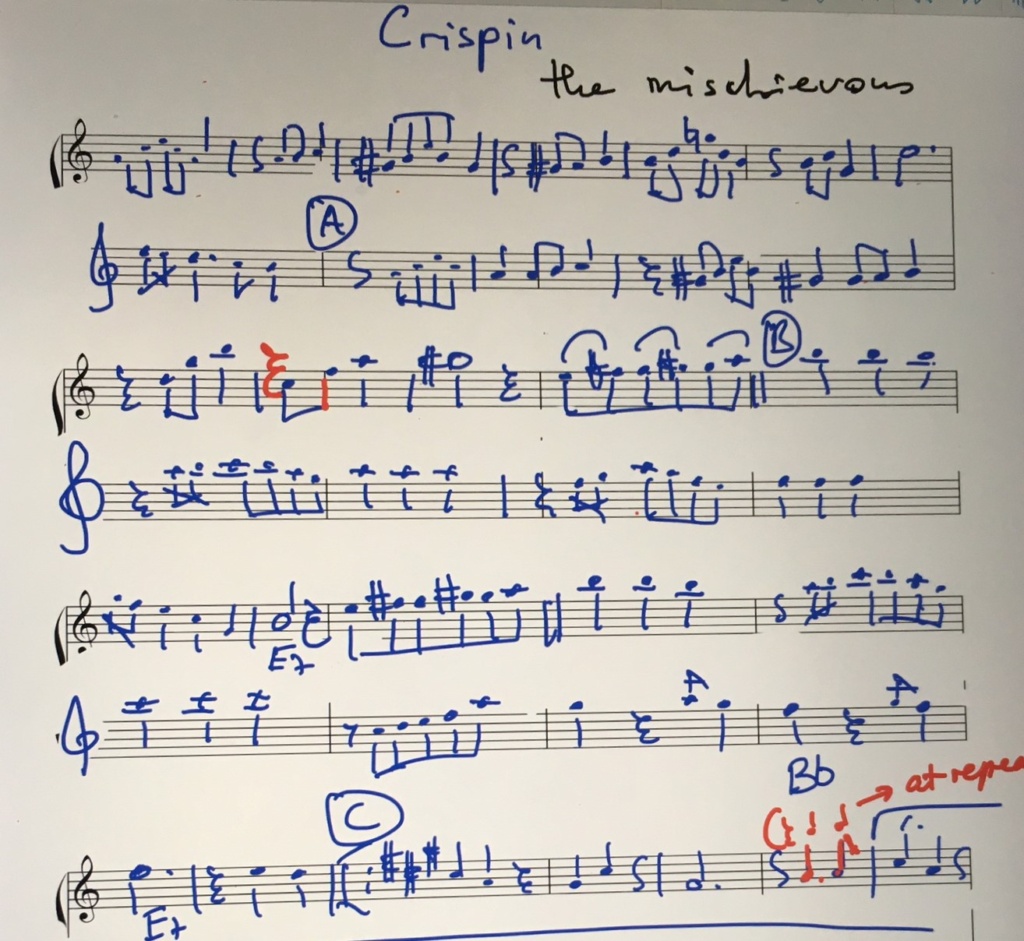
When the composers started writing their pieces, my job as editor of the collection was to make sure the music offered a variety of styles for players as well as providing guidance to the composers about writing for flute. Many of the composers had written for professional flute players before, but not for students, and I specifically wanted to have music for intermediate-level students. To assist composers, I supplied an extensive set of specifications, such as the suggested range of notes, appropriate keys to use, and rhythmic patterns suitable for players of this level.
Some composers had not written for solo flute before, such as Harradine, who primarily writes for keyboard and music theatre. When I asked him about the commission, he was very enthusiastic and keen to learn about writing for flute students. For some of the composers unfamiliar with writing for wind players, I had online meetings where I would play phrases of their draft with different articulations so they could hear the possibilities for phrasing. I really enjoyed these interactions, and it was interesting to hear their thoughts.
Sometimes, a draft would already have all the articulations marked, but sections were too difficult for intermediate players, so I would suggest alternatives. Or a combination of fingerings would be too difficult and require the composer to come up with a new idea for a measure. While providing guidance and technical specifications is essential, giving composers artistic freedom and flexibility is equally important. Balancing the limitations of the intended student performers with the composers’ inspiration was not always easy, but led to some exceptional creations.
Keeping the wheels turning
To ensure the timely delivery of the project, I gave clear timelines and requested updates on progress. When working with a group of people, effective communication is essential to ensure the project deadline is met and that the work of each individual will complement the others. The main forms of communication were emails, online meetings, and phone calls. As my first commissioning project started in 2020 during pandemic lockdowns, I could not even meet with the composers in my hometown.
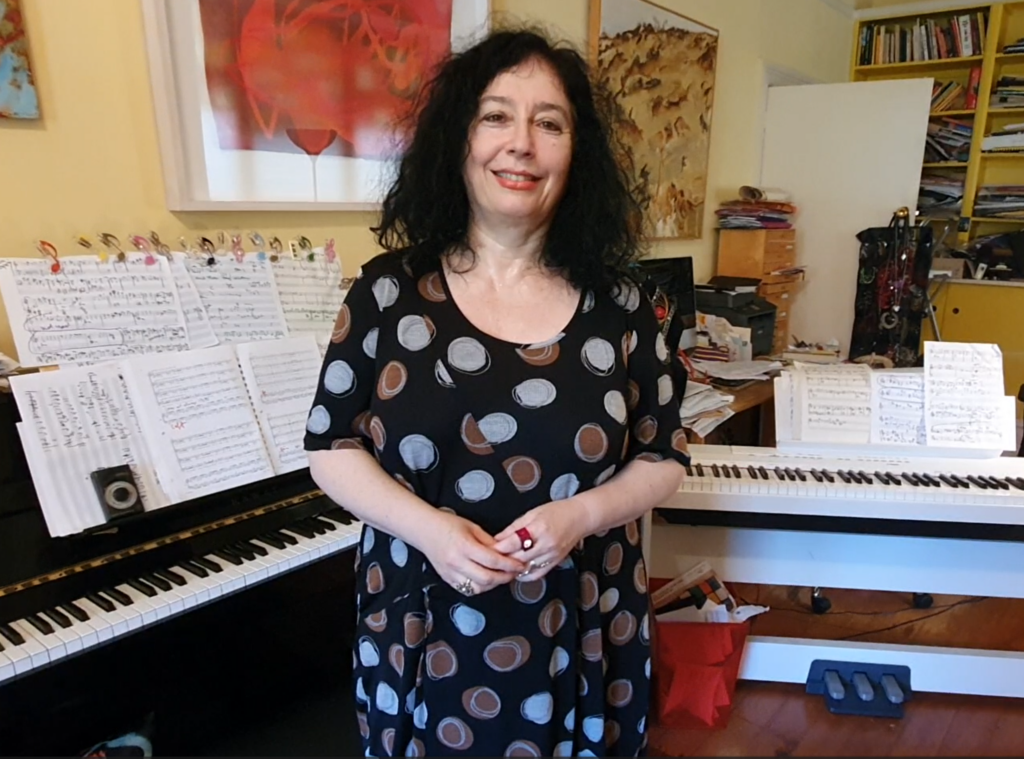
Some composers, such as Gary Schocker, worked very quickly and sent a completed manuscript within days of the request. Others would send the first 16 measures for me to approve before they continued, or some sent half a dozen ideas for me to select the ones I liked. Other composers, such as Elena Kats-Chernin, involved me in the compositional process from the start. Over a phone call, she would play ideas on the piano, “Do you like this?” or “What about this?” and the piece would evolve right before my eyes! After an hour or so of mesmerizing brainstorming, she would write out the ideas we had agreed upon and send me a hand-written draft outlining the melodic ideas for the piece with a few chords underneath.
Setting clear timelines and deadlines for commissioned works is crucial to ensure the project progresses smoothly. Constructive feedback is also essential to the process, especially when commissioning for a specific purpose. Expressing your thoughts on the work's suitability or suggesting revisions must be done diplomatically and respectfully. Some composers are very open to feedback (“If you don’t like it, that’s fine, just tell me and I’ll start again!”), while others require a more delicate approach. As I was commissioning works to be part of a collection, I had to balance the needs of the project with enough flexibility to maintain the composers’ artistic inspiration.
Reflections
Commissioning composers to write new music for intermediate-level flute players has been a fascinating journey, laden with both challenges and rewards. I feel very privileged to have worked with these talented composers, some of whom I’ve now worked with on other projects in the last three years, fostering friendships along the way.
Thus far, I've commissioned around 50 pieces for the flute, a number set to surpass 85 by the end of the year. This undertaking is a substantial financial commitment, encompassing not only commissioning the music but also the subsequent steps of publishing, including printing and distribution, as well as producing professional recordings for teachers and students to use. However, once I embarked on this path, it became irresistible. Witnessing the birth of new compositions and sharing them with flutists worldwide is an exhilarating experience. I hope that these new works will be enjoyed by current and future generations of flute players.
KAREN NORTH M. Mus., B.A. (Hons.), Dip. Ed. (Music) is a music teacher, mentor, and book author based in Australia. She is passionate about bringing music into the lives of children and adults and has enjoyed working in music education for the past 40 years. Karen is the author of The Young Flute Player series and has commissioned works from many composers for her new repertoire books Lyrical Flute Encores, Lyrical Flute Legends, and Inspiring Flute Solos.
Website: https://www.allegromusicpublishing.com/flutemusic
Instagram: https://www.instagram.com/theyoungfluteplayer/
Facebook: https://www.facebook.com/allegropublishing
YouTube: https://www.youtube.com/channel/UC14kQiYx9ksLFQplZRzN3hA
